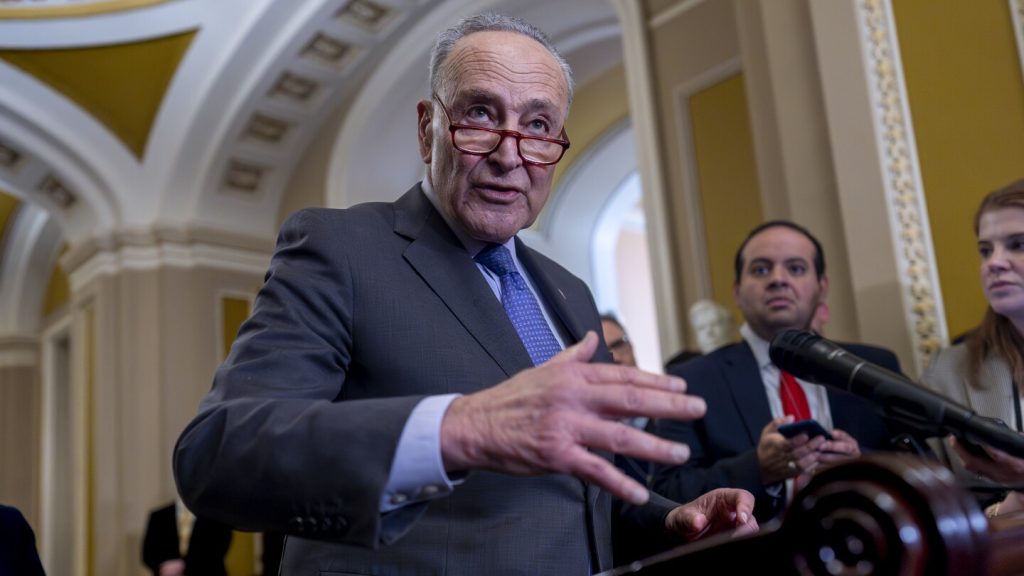The Senate passed a $1.2 trillion package of spending bills in the early morning hours on Saturday, averting a government shutdown that had loomed due to expired funding for various agencies. The bill now awaits President Joe Biden’s signature to become law. The White House expressed confidence that the legislation would pass, preventing any immediate shutdown of government operations. The Senate vote of 74-24 came after tense negotiations between Republicans and Democrats over proposed amendments to the bill, which could have sent it back to the House, causing further delays.
The bill provides funding for several key departments such as Defense, Homeland Security, and State, along with other branches of the general government. While Congress had already approved funding for some agencies, this larger bill covers a more comprehensive range of government functions. The House passed the bill by a narrow margin, with more than 70% of the funding allocated to defense. The vote breakdown revealed frustration among Republicans, with a significant number voting against the bill despite Speaker Mike Johnson’s efforts to ensure bipartisan support.
House Republicans had raised concerns about the content and speed with which the spending package was brought to a vote. Speaker Johnson structured this year’s spending bills in two parts to address these concerns, breaking away from the practice of presenting one large omnibus bill for a vote. However, many Republicans still viewed the bill as a compromise, lacking in their policy priorities and spending cuts. The lengthy process of reaching an agreement on government funding was attributed to conservative demands for stricter policies and cuts, causing several temporary funding measures to keep agencies operational.
To secure Republican support, Johnson highlighted increases in spending for detention beds for migrants and Border Patrol agents, while Democrats touted investments in programs like Head Start, cancer research, and Alzheimer’s research. Both parties faced challenges in negotiating amid tight budget constraints and pressure from lawmakers to include or exclude various provisions. The spending package largely aligned with a previous agreement between then-Speaker McCarthy and the White House, which aimed to control spending and suspend the debt ceiling. The agreement is expected to save the federal government about $1 trillion over the next decade.
Overall, the passage of the spending package marks a significant milestone in the budget process, addressing funding needs for key government departments and programs. Despite partisan disagreements and delays, lawmakers were able to reach a bipartisan agreement and avert a potential government shutdown. The bill’s approval reflects compromises made by both parties to meet their respective priorities while adhering to budget constraints. The focus now shifts to President Biden’s signing of the bill into law, ensuring continued government operations and funding for critical services.


